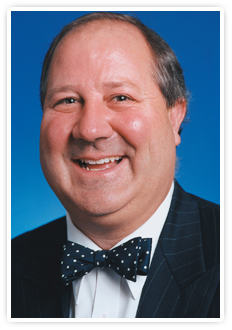Steven Hayward’s OpEd in the Wall St. Journal this week (“No: Alternatives Simply Too Expensive“) annoyed me the first time I read it. But on re-reading it today, I’m struck by two things:
1. First, what he gets right: CO2 is fundamentally different, and can’t be treated in the same way we have dealt with other pollutants.
2. Second, what he gets wrong: Having started off well by questioning the conventional wisdom on CO2 regulation, he then builds his case on the flawed conventional wisdom of energy economics.
What He Gets Right
Hayward writes that:
Greenhouse gas isn’t a traditional air-pollution problem. It is an energy-use problem, and that makes a world of difference. Traditional air pollution is an unwanted byproduct. Reducing it does not require any constraint on fossil-fuel use. Indeed, over the past few decades, we’ve doubled consumption of some fossil fuels while making huge cuts in pollution.
This is exactly right, and far too often ignored. Our 30-year old environmental movement has had great success by setting limits for emissions release that all the experts insisted were impossible. On the positive side, that has allowed us to reduce NOx, particulate, SO2, hydrocarbon and other emissions far more quickly than we otherwise would have done. On the other hand, it has bred a certain arrogance amongst some in the environmental regulatory community who have learned to dismiss claims of what is and isn’t possible as so much noise.
That’s a problem for CO2, because CO2 really is a function of energy use. You can reduce NOx emissions by changing combustion technologies, but you can only reduce carbon emissions by … well, burning less carbon. We tend to think about environmental regulation as a sequential process that first makes the pollution, and then cleans it up. Call it the Don’t Litter model: generate all the trash you want, but then take it to a landfill. This works pretty well for most air pollutants, where we can scrub, precipitate and catalyze our exhaust streams to separate our “trash.” But it doesn’t work for carbon, since it comes along with the fuel. You can’t get the carbon out at the end of the pipe — you have to take it out at the front — which in turn requires a significant reduction in our access to energy and/or a world that relies on a lot less carbon-containing fuel.
It is one thing to enact legislation that raises energy costs in the name of environmental protection, but something else entirely to limit access to energy in the name of environmental protection. That limit may or may not be inevitable, but to dodge the moral dimensions of the limit is irresponsbile.
Which brings us to what he gets wrong.
What He Gets Wrong
Hayward goes on:
Carbon dioxide, however, is the result of complete fuel combustion. Apart from still-unproven technologies, there’s no way to remove it from the process. The only way to reduce emissions is to burn less fuel, which means less energy output.
Yes, CO2 results from fuel combustion. Yes, CCS is a bunch of hokum. But it’s nonsense to claim that you can’t reduce emissions without producing less energy, since such a claim requires the ratio of energy in/energy out to be forever fixed. Says who? Have we reached such degrees of societal perfection that we will never be able to increase our energy efficiency? If so, someone please arrest the entire population of Denmark for so consistently and egregiously violating the laws of thermodynamics (they currently consume about 1/2 the fossil fuel of the U.S. per dollar of GDP).
I should emphasize here that my beef isn’t with Mr. Hayward. He’s just a dude at a think tank, who apparently writes a bit about economic indicators and has a degree in American Studies. There’s no real reason to presume that he has a deep understanding of thermodynamics, much less the efficiency of capital allocation in the U.S. energy sector. But it is consistently troubling how gullible we are as a society (and our major media outlets) whenever someone makes some variant of the “if it’s such a good idea, someone would have already done it” argument.
We want to believe that our markets are perfect. We all took an economics course somewhere along the line, and at some point got intoxicated by the idea of dancing supply/demand curves setting prices that businesses were unable to manipulate and giving us the moral comfort of knowing that our selfish pursuit of our own self-interest transmutes itself into the broadest possible social good. It’s heady stuff. Trouble is, even economists don’t believe it. Those perfect supply and demand curves and Adam Smith’s hand only manifest themselves when perfect markets exist. And they almost never do.
Intuitively, we know this. 5 years ago, I got my sister a Rio for christmas. Digital music! How great a brother am I? Today, she has an iPod, and my feelings aren’t hurt. Nor do I spend too much time troubling myself with the apparent contradiction of a perfect market that built a whole factory to make Rios instead of anticipating their pending obsolescence thanks to Steve Jobs’ tinkering. Why then, does Hayward get so worried that:
Power plants, refineries and transmission grids are long-lasting assets, so a rapid switch to new technology will mean retiring assets before their useful life is over and diverting trillions in capital from other sectors.
How does the age and/or cost of these assets make them worth saving? If they’re obsolete, let ’em die. That’s how markets work. And if they’ve been allowed to forestall obsolesence simply because they got a free pass on their environmental impacts … well, then markets weren’t allowed to work.
Fixing the Framework
The irony here is that if you keep the bits he got right and replace the ones he got wrong, you end up with exactly the opposite conclusion, and one that is a cause for optimism. Put a price on CO2, let markets factor that price into their capital allocation decisions and we will find ways to burn less fuel. (Since, per Hayward, CO2 is innately linked to our fuel consumption). Burn less fuel and we will buy less fuel, leaving more money in our pockets for other things. Like investing in a new, more efficient infrastructure to replace those old obsolete facilities. More jobs. More money. More (and more sustainable) economic growth. Those are the inevitable results of any policy that forces us to reduce our fossil fuel consumption.




